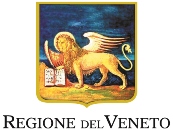Treasure hunt in the mine of data
Innovation, knowledge and climate communication
Monday, September 29, 2014, 18:00
Università Ca’ Foscari, Venezia
Aula Magna Silvio Trentin, Ca’ Dolfin
The event will be in Italian
There is a mine of information; a rich reservoir of possibilities for science, society, and economic activities whose development has to do with the conditions of the present and future climate. These data and information can greatly enrich the work of administrators called to plan the management of the territory, as well as the knowledge of those working to deal with, prevent, and avoid the negative effects brought by the intensity and frequency of weather events which, until recently, we were not accustomed to.
It’s a mine of information that affects all people who want to know the risks and opportunities related to climate change.
It’s a living reservoir, which grows and is continually refined thanks to the collaboration between the climate sciences – whose research produces models, simulations, and scenarios to analyze the future climate – and the supercomputer and technological innovation, increasingly sophisticated, powerful and innovative scale computers, which are capable of processing vast amounts of data faster than ever before. The evolution of supercomputers brings to science the opportunity to carry out frontier research and to produce increasingly detailed information on climate change and its interactions with the environment, economic activities, and people’s health.
But there is a problem concerning the language: how do we translate this information into a language that is understandable to a diverse group of recipients? How do we find a way to describe the main contents of this vast and complex mine of data in order to make them understandable and interesting to the public and to those who have an interest to learn more about the climate?
We look for the answer to these questions through a dialogue between scientists and the media: both are called to face this challenge from which they cannot back away. We’ll talk about these issues and attempt to display the climate data in innovative ways (such as Lancelot, the web application designed to provide an interactive, dynamic and integrated visualization of climate data on maps for a vast and differentiated audience, and Climate Policy Observer, the new ICCG web portal on climate and energy policies) and we’ll discuss how it is possible to identify new languages, inhabiting the media- from TV to web, from print media to videogames – which are potentially capable of opening the enormous door and invaluable reservoir of information on climate.
Speakers:
Stefano Caserini – Politecnico di Milano / Climalteranti
Silvio Gualdi – Centro Euro-Mediterraneo sui Cambiamenti Climatici (CMCC)
Loris Mazzetti – Rai3 // Che Tempo che fa
Luca Mercalli – Società Meteorologica Italiana // FIMA
Valerio Gualerzi – Repubblica
Fabio Viola – DigitalFun
Aurora D’Aprile – International Center for Climate Governance (ICCG)
Enrica De Cian – Fondazione Eni Enrico Mattei (FEEM)
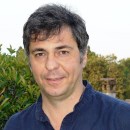 Stefano Caserini
Stefano Caserini
Politecnico di Milano / Climalteranti
Born in 1965, Stefano has a Master degree in Environmental Engineering and PhD in Sanitary Engineering. He is contract professor of Mitigation of Climate Change at the Politecnico di Milano, Engineering Faculty, where he is involved in researches on atmospheric pollution, life cycle assessment, municipal waste incinerator monitoring and greenhouse gas emission assessment and reduction. He also works as a consultant for private and public company in the fields of emission inventory, environmental impact assessment, air quality pollution and mitigation of climate change. Between 1999 and 2012 he has been the Project Manager of INEMAR, Lombardy Region Atmospheric Emission Inventory, currently managed by ARPA Lombardia (Environmental Protection Agency of Lombardy). Author of many scientific publications, he is also involved in the dissemination of scientific knowledge on climate change; he has published four books: “A qualcuno piace caldo” (Some like it hot) and “Guida alle leggende sul clima che cambia” (Guide to the legends on the changing climate), “Imparare dalle catastrofi” (Learning from catastrophes) and “Aria Pulita” (Clean Air). He is founder and coordinator of Climalteranti, one of the main Italian blog on climate change (www.climalteranti.it) and Co-Director of the review “Ingegneria dell’Ambiente” (Engineering of the Environment).
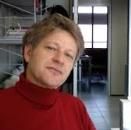 Silvio Gualdi
Silvio Gualdi
Centro Euro-Mediterraneo sui Cambiamenti Climatici (CMCC)
Silvio Gualdi got a degree in Physics at the University of Modena, Italy and a PhD in Geophysics at the University of Hamburg. Since year 2007, he is Senior Scientist at the Centro Euro-Mediterraneo sui Cambiamenti Climatici (CMCC), where he led the “Climate variability and climate change” group from 2007 to 2011. During this period, he coordinated the CMCC contribution to the CMIP5 decadal predictions (performed in the framework of the COMBINE EU-Project.) and climate change projections. Furthermore, during the period 2008-2011 Dr. Gualdi coordinated the modelling activity in the framework of the CIRCE EU-Project, where a new set of high-resolution atmosphere-ocean coupled models able to resolve the small-scale features of the Mediterranean Sea have been developed, and a set of climate change projections for the Mediterranean region have been performed and analyzed (Gualdi et al. 2013). Since July 2011 he is Director of the Climate Service Division at CMCC, leading the activities of climate change projections and climate predictions (from seasonal to decadal time scales) performed at CMCC. He has been author of more than 60 scientific publications as articles in peer-reviewed journals and book chapters.

Valerio Gualerzi
La Repubblica
Born in Rome in 1967, he graduated in Contemporary History at the La Sapienza university discussing a thesis on the “Moro kidnapping”. Full time journalist since 1991, he worked for several newspapers and radio-tv broadcasting networks such as “Il Messaggero”, “il manifesto”, “Paese Sera” and “Rai”. Presently he is a staff writer in the online newsroom of the daily “La Repubblica” covering mainly environmental news.
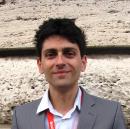
Fabio Viola
DigitalFun
Digital Gam(bli)ing and Gamification Pioneer with +10 years. Leveraging the power of game thinking, he creates and designs extraordinary experiences with super engagement in mind. He has served Electronic Arts, Digital Chocolate, Namco, Vivendi, Lottomatica, English-Attack. Actually he is the founder of DigitalFun s.r.l. and MobileIdea s.r.l. He is also author of the book “Gamification – The Videogames in the Ordinary Life” and member of the scientific committee in the Master “Theory, Design and Applications of the Gamification” at University of Rome Tor Vergata.
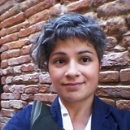 Aurora D’Aprile
Aurora D’Aprile
International Center for Climate Governance (ICCG)
Aurora D’Aprile joined the ICCG team in 2013 as researcher in climate and energy policy, and as web content developer. She writes news and analyses for ICCG publications and for the Climate Policy Observer observatory. She coordinated the development of the website Climate Policy Observer. She has been studying international climate policy since 2010, also collaborating with web-magazines, radios and news agencies. She holds a Master of Arts in International Studies from Università degli Studi, Milano, Italy, where she graduated in 2011 with a final thesis on climate policy negotiations.
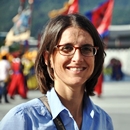 Enrica De Cian
Enrica De Cian
Fondazione Eni Enrico Mattei (FEEM)
Enrica De Cian is senior researcher at Fondazione Eni Enrico Mattei (FEEM) and research affiliate at Centro Mediterraneo per i Cambiamenti Climatici (CMCC), Italy. Enrica De Cian holds a PhD in Economics and Organization from the School of Advanced Studies in Venice (obtained in 2008). Over the past years, she collaborated with several research organizations (CEPS – Brussels, Massachusetts Institute of Technology (MIT) – Cambridge, ZEW -Mannheim). She has worked at the development of the AD-WITCH model, one of the first Integrated Assessment Models combining mitigation and adaptation policies to climate change. Over the past five years, her research has addressed various topics, including induced innovation and technological change, integrated assessment of climate change mitigation policies, the economics of adaptation, mitigation, and their tradeoffs, climate change impacts. In 2012 Enrica was awarded a Marie Curie Research Fellowship and at present she is a research scholar at the Department of Earth and Environment, Boston University, USA.
















